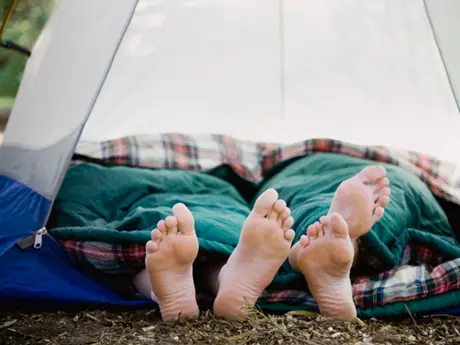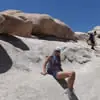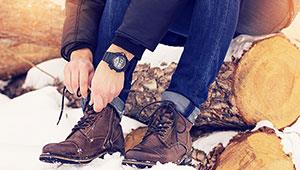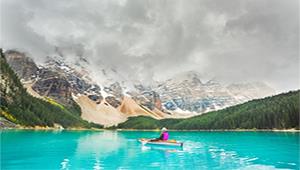
The sound of crickets, the cool breeze blowing through your tent—it's almost perfect, until you wake up to a sore back and heavy eyes because a thin mat or old, withering air mattress doesn't always make for the best night of sleep.
Get some much needed shut-eye when you purchase a sleeping pad that has all the top qualities.
More: 7 Tips for Sleeping in a Tent
Insulation
Insulation keeps you warm as the nighttime chill creeps into your tent and a good sleeping pad traps a layer of air between you and the ground. This air is then heated by your body, which keeps you warm through the night.
To determine how well your sleeping pad will keep you warm, check the R-value. This measures the insulation's ability to resist heat flow, keeping it within the pad. The scale runs from 1.0 to 9.5, the best-insulated pads are rated higher.
Comfort
Though a sleeping pad may never be as comfortable as your four-post bed at home, you can still find one that will lull you into a restful sleep. There are two types of sleeping pads to choose from, each providing different levels of comfort.
- Inflatable: An inflatable sleeping pad, whether self-inflating or manual, provides excellent insulation and total comfort.
- Foam: While foam pads are relatively inexpensive, and insulate well, they tend to be a bit more stiff.
More: How to Choose the Best Sleeping Bag
Size
Sleeping pad size is crucial to sleeping well in your tent. A sleeping pad that's too short or narrow will not only be uncomfortable, but won't provide insulation for your entire body. The average size is 72 inches, with longer ones ranging from 75 to 78 inches. Choose the one that will best fit your height.
Portability
While comfort is crucial, if you can't pack your sleeping pad then it's of no use. So, whether you're camping or backpacking, be sure to consider portability, as well.
Inflatable options are compact when rolled up. However, they're much heavier than foam pads. Foam pads, on the other hand, are lightweight, and durable, making them the best choice for backpackers who are trying to keep their pack light.
Accessories
Once you determine your basic sleeping pad needs, it's time to consider the extras.
- Eco-friendly: These are usually made from recycled foam and eco-friendly fabric. Big Agnes and REI both offer recycled sleeping pad products.
- Multiple air chambers: With multiple air chambers, you can customize the sleeping experience just for you. Let some chambers out and fill others up for a better night's sleep.
- Built in pillow: For backpackers, this will be especially helpful. While it may not be as comfortable as your fluffy pillow at home, it's one less thing to pack while adding a little extra support.
Finding a good sleeping pad is critical to getting the best sleep on your camping or backpacking trip. To ensure you'll be warm and comfortable all through the chilliest of nights, figure out the right combination of features for you.
More: High-Tech RV Accessories
 Find a Campground at ReserveAmerica.com.
Find a Campground at ReserveAmerica.com.
About the Author











Discuss This Article